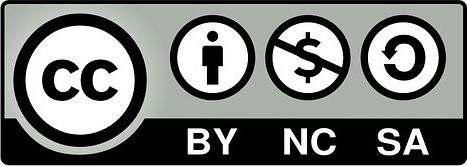INFLUENCE OF BACTERIOCINS PRODUCED BY Lactobacillus plantarum LPBM10 ON SHELF LIFE OF CACHAMA HYBRID FILLETS Piaractus brachypomus x Colossoma macropomum VACUUM PACKAGED
DOI:
https://doi.org/10.17533/udea.vitae.763Keywords:
bacteriocins, fish, Lactobacillus plantarum LPBM10, aquaculture, shelf life.Abstract
Some lactic acid bacteria genera (BAL) as Lactobacillus, Leuconostoc, Lactococcus or their antimicrobial
products as bacteriocins are used as alternatives biopreservation of minimally processed foods kept under
refrigeration. Potential Biopreservatives from a bacteriocin producer native strain, Lactobacillus plantarumLPBM10 ,was evaluated on fillets of cachama hybrid Piaractus brachypomus x Colossoma macropomum,
vacuum-packed and stored at 30±0,5°C during 30 days. The evaluation was undertaken using three
treatments, bacteriocins raw extract, lactic acid and control. There were not differences among treatments
on Mesophylls count. Meanwhile, psychotrophylls count reached values for fillets treated with raw
extract of bacteriocins, lactic acid and control, 5.2 cycles log, 6.7 cycles log and 6.4 cycles log (P<0.05),
respectively. Regarding total coliforms, 2.6 cycles log of initial count was obtained, maintaining the
same value until the end of storage. Faecal coliforms count, at the end of storage period diminished
1.3, 1.5 and 2.1 cycles log for fillets control treated with raw extract of bacateriocins and lactic acid,
respectively. BVT-N analysis showed the best results on treatment with raw extract of bacteriocins
and end with 19.3 mg BVT-N/100g. Sensorial analysis results showed the greater acceptability range
for bacteriocins raw extract treatment.
Downloads
Downloads
Published
How to Cite
Issue
Section
License
Copyright Notice and Open Access Statement
The Journal Vitae works under the Open Access license, and the published manuscripts remain available for the public, both on the Journal's website and in databases, under the Creative Commons license, "Noncommercial Attribution" and "Share alike" systems, adopted in Colombia. Hence, when the authors agree to publish in the Journal Vitae, they will not have the right to economic retributions on publications and reproductions through different diffusion media. The documents are freely available to the internet public, permitting users to read, download, copy, distribute, print, search, or link to the full texts and pass them as data to software. The only constraint on reproduction and distribution, should be to give authors control over the integrity of their work and the right to be appropriately acknowledged and cited.
Authors declare that:
-
They are the intellectual property owners and are responsible for all the information stated in the article.
-
This manuscript has not been submitted or published in other printed or digital media. They accept the responsibility for the judgments, opinions, and points of view expressed in the published article and, therefore, they exonerate Universidad de Antioquia and Journal Vitae from any process.
-
They exempt Universidad de Antioquia and Journal Vitae from settling conflicts or disputes related to the authorship of the referred article.
-
They accept the revision of the original manuscript by suitable personnel, and they bind themselves to perform the corrections appointed or suggested by the assessors.
-
Therefore, they know the editorial process and will not bind the Editorial Board of the Journal to assume any obligations regarding the volume and issue in which the article is published.
-
They transfer the rights of publication, reprinting, and distribution of the article from the moment of its approval, in print and digital format, without the right to economic rewards, and under the licensing conditions considered relevant by Journal Vitae.
-
They fully authorize Universidad de Antioquia and Journal Vitae to submit the published material to the diverse databases and indexing systems where the Journal can be found to comply with the requirements of the regulatory authorities to maintain the national classification of journals.
-
They will assume the article publication costs established for the current issue, and they will make the payment as soon as they are informed about the volume and the issue in which the final version of the article is published.
-
After the article is published, you can share digital or printed copies in a noncommercial manner. You will be able to use the paper in your institution or company for educational or research purposes, including the use in course programs.
Conflict of interest: Authors are responsible for recognizing and disclosing any financial or other benefits that could be perceived to bias their work, acknowledging all financial support and any personal connections with potential sponsors. Examples of such conflicts include receiving research funds or honoraria, serving on advisory boards, stock ownership, or employment and consulting arrangements. Authors without such connections should clearly state that they have no financial support or personal relationships that could be perceived to bias their work. All conflicts of interest should be disclosed on the author's identification page of the manuscript.










